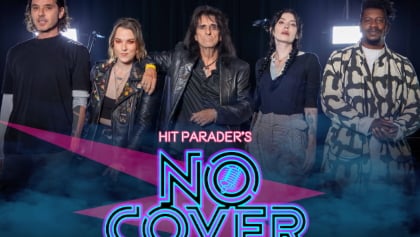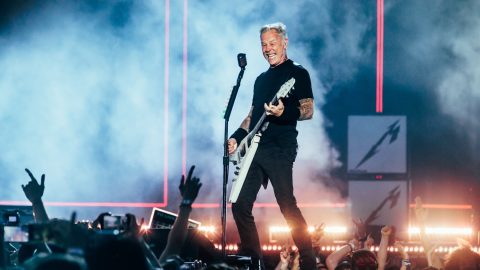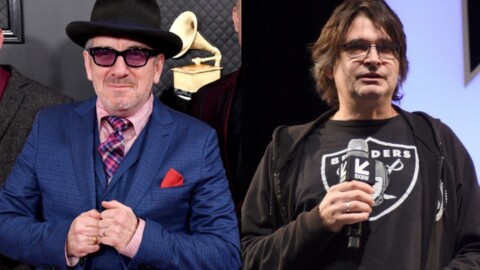
The European Broadcasting Union (EBU) has warned against “harassing” Eurovision entrants this year over Israel’s participation.
Today (April 9), the EBU has released an official statement addressing the “harassment” against its artists this year. The final will be held on May 11 this year in Malmö, Sweden.
Deputy Director General Jean Philip De Tender wrote: “The European Broadcasting Union acknowledges the depth of feeling and the strong opinions that this year’s Eurovision Song Contest – set against the backdrop of a terrible war in the Middle East – has provoked.
“We understand that people will want to engage in debate and express their deeply held views on this matter. We have all been affected by the images, stories and the unquestionable pain suffered by those in Israel and in Gaza.”
However, Tender addressed the concerns of the “targeted social media campaigns” being carried out. He wrote that the “decision to include any broadcaster, including the Israeli broadcaster KAN, in the Eurovision Song Contest is the sole responsibility of the EBU’s governing bodies and not that of the individual artists.”
He also wrote that whilst the EBU “strongly” supports “freedom of speech and the right to express opinions in a democratic society”, “we firmly oppose any form of online abuse, hate speech, or harassment directed at our artists or any individuals associated with the contest.
“This is unacceptable and totally unfair, given the artists have no role in this decision.”
The EBU calls for all artists participating in this year’s Eurovision Song Contest to be treated respectfully and condemns all abuse and harassment.
For our full statement please go to https://t.co/buR9TbBRlf pic.twitter.com/WvaQWGGnb0
— Eurovision Song Contest (@Eurovision) April 9, 2024
Furthermore, Tender wrote that the EBU has “previously explained the reasoning for the inclusion of KAN and the differences between them as an independent broadcaster and previous participants who were excluded. Constructive debate is a positive consequence of such decisions.”
Israel previously threatened to pull out of the song competition due to disputes over the lyrics of their entry. The song, which was previously titled ‘October Rain’, seemingly contained references to the October 7 Hamas attacks.
However, after Israeli president Isaac Herzog emphasised the “importance” of competing at this year’s competition, Israel was confirmed to participate upon the amendment of their controversial lyrics.
Tender closed his statement by urging “everyone to engage in respectful and constructive dialogue and support the artists who are working tirelessly – on what is a music and entertainment show – to share their music with the world.”
In response, the Palestinian BDS National Committee accused the EBU of flaunting its “colonial hypocrisy and shameless complicity in Israel’s genocide against 2.3 million Palestinians in Gaza.”
They went on to point out the difference in treatment between Israel’s participation in Eurovision, whilst Russia was “swiftly banned for its illegal invasion of Ukraine”. They further claimed that the “EBU proves its utter disregard for Palestinian life,” accusing them of failing to “ban genocidal Israel”, “stand up for contestants who disagree with Israel’s participation” and “listen to millions of fans calling on it to drop Israel.”
“In a desperate attempt to shift the blame, it now points the finger at human rights supporters,” the statement continued. “The Palestinian Campaign for the Academic and Cultural Boycott of Israel (PACBI), a founding member of the BDS movement, reiterates our call on all Eurovision contestants to be on the right side of history by immediately withdrawing from this year’s tarnished contest.”
The statement follows a number of calls to boycott the competition from various countries. Over 1,000 Swedish artists called for Israel to be banned this year, such as Robyn, Fever Ray, and First Aid Kit, whilst over 1,400 Finnish music industry professionals have signed a petition to ban the country from taking part of the contest as well.
In the buildup to the 2024 edition, individual artists such as Olly Alexander have faced calls to boycott the event as well. Alexander, the UK’s entry this year, initially signed a statement last December calling Israel an “apartheid state” and accusing it of genocide.
However, after receiving an open letter from numerous queer artists and individuals to boycott Eurovision last March, a number of Eurovision performers – including Ireland’s Bambie Thug, Norway’s Gåte, Portugal’s Iolanda and Alexander himself – responded to the letter saying they “firmly believe in the unifying power of music”.
Shortly afterwards, Alexander confirmed he would not be boycotting Eurovision, adding: “I know some people will choose to boycott this year’s Eurovision and I understand and respect their decision.”
“As a participant I’ve taken a lot of time to deliberate over what to do and the options available to me,” he continued. “It is my current belief that removing myself from the contest wouldn’t bring us any closer to our shared goal.
“Instead, I’ve been speaking with some of the other EV contestants and we’ve decided that by taking part we can use our platform to come together and call for peace.”
The post Eurovision artists facing “abuse and harassment” over tensions of Israel participating, EBU warns appeared first on NME.







